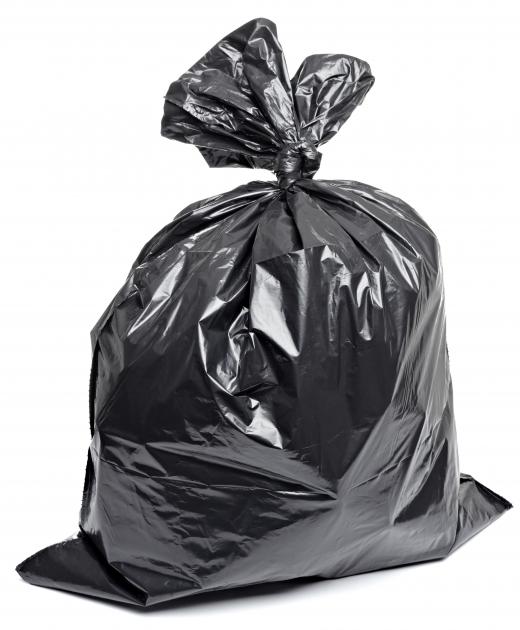What is Garbology?
Garbology, a small niche of archaeology, is the scientific study of trash and the way it reflects upon the lifestyles of a group of people. The concept was first introduced to the world of academics in 1971 by Professor William Rathje of the University of Arizona, and the field has gained popularity in recent decades.
This field has provided the world with startling information relating to the amount of time it takes for refuse to biodegrade and the types of items that are sent to landfills. It has even produced revelations about popular culture in regard to presumed thoughts about the habits of certain groups, including different genders. The study of garbage may be as simple as dissecting the contents of a dumpster, or as involved as excavating a portion of a landfill. The discipline has also caught the eye of many law enforcement and government agencies, many of whom use the practice to help thwart crime by searching for evidence of illegal activity.

The term garbology often refers to the scientific aspect, but it may also be used as slang, labeling the work of waste management workers and trash collectors. It may also be applied to investigative journalists who use a person's trash to gain more information for a story. Despite these two derivatives from the popular meaning of the word, the study of trash in academic settings remains strong. Many schools, recycling centers, and even several universities offer courses in the field to improve community awareness about the amount and type of garbage that a population might go through on a regular basis.
Additionally, garbology is not a science that centers strictly on modern cultures. Specialists in the field are often called to an archaeological site when a civilization has left behind nothing but their refuse. Garbage taken from historic sites may provide archaeologists with information about a time period that may not be available in any other way.
AS FEATURED ON:
AS FEATURED ON:











Discussion Comments
@JaneAir - I disagree. I wouldn't want anyone going through my garbage. I feel like it's private, even if I've thrown it away. I think that police should definitely have to get a search warrant in order to go through a suspect's garbage. I'm also not sure how that works in real life though!
I've seen this kind of thing on one of those crime shows on television. On the show, the detectives were able to learn a lot about their suspects habits by going through his garbage. Then, they were able to follow him around and eventually catch him in the act of committing another crime.
However, if I remember right, the detectives got in trouble for going through the garbage without a search warrant. I'm not sure how true to real life that is though. Because it seems like once you throw something away, it should be fair game.
@indemnifyme - I've seen those statistics you're talking about in commercials. I never thought that someone had to study actual garbage to come up with those numbers though. I can tell you, I wouldn't want that job, even if it is potentially helpful to the planet!
I've never heard the garbology definition before, but I think this is a really interesting idea! For one thing, I've often wondered how they get those statistics about how much the average household throws away, or about how many bottles of water we go through a year. It looks like a garbologist probably compiled the data and did a study!
I think this field is probably really helpful for environmentalists and other scientists that are interested in preserving the environment. Once we know about how much garbage we produce, we can take steps to reduce it!
Didn't know too much about this topic and I found it very interesting to talk about this to students in my school.
Post your comments